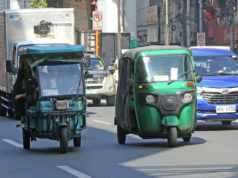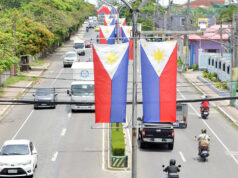Marawi City set for rehabilitation amid criticism vs Chinese partners
By Arjay L. Balinbin, Reporter
THE government inter-agency task force group for Marawi City’s rehabilitation announced on Thursday a Swiss challenge period for proposals reset to next week, May 30 or 31.
Thursday’s press briefing by Task Force Bangon Marawi (TFBM) in Marawi City, led by Presidential Spokesperson Harry L. Roque, Jr. and Housing and Urban Development Coordinating Council (HUDCC) Chair Eduardo D. del Rosario, also sought to answer criticisms about the rehabilitation plan which involves Chinese and Filipino companies under the Bangon Marawi Consortium (BMC).
Magdalo Representative Gary C. Alejano in a statement on Thursday said, “Worries on the degree of control that China would have on these projects could not be dismissed especially since the Filipino companies included have no history of contracting big government projects.”
TFBM on Wednesday disclosed before the House Committee on Muslim Affairs that the selected companies for BMC, set to lead rehabilitation programs in the war-stricken city, are composed of five firms from China and four from the Philippines.
The Chinese companies are Anhui Huali Construction Group Co. Ltd., China Geo-Engineering Corp. Ltd. (CGC), China State Construction Engineering Corp. Ltd. (CSCEC), Shandong Jinyuan Homes Industry Development Co. Ltd., and TBEA Co. Ltd.
The Filipino-led companies are Future Homes Co. Ltd. Phil., Inc., A Brown Company, Inc., H.S. Pow Construction and Development, and SDW Realty & Development Inc.
“Majority of the companies included in the BMC are Chinese. Two are even state-owned enterprises which mean that state funds of China would be used,” Mr. Alejano said, referring to the CSCEC and CGC.
He added: “The two Chinese state firms were involved in corruption and fraud scandals. In fact, they were once blacklisted by the World Bank and DPWH (Department of Public Works and Highways) itself. Though already lifted from the list, China State Engineering continued to get involved in corruption scandals in other countries.”
“They have a timeline and grand proposals being presented to the public, but they have not even mapped out where these constructions will be built,” Mr. Alejano also said. “Worse, they have not yet consolidated the number of displaced and affected Maranaos. How can we move forward if there is no starting point yet?”
Mr. del Rosario, for his part, said CSCEC and CGC are now “eligible” to participate in the rehabilitation plan.
“It’s not active anymore,” he said of World Bank’s blacklisting. “They are legitimate. They are not blacklisted.”
The said firms were “blacklisted over alleged collusion in the bidding of some projects. I assure there will be no collusion in our bidding,” Mr. del Rosario added.
In its statement, TFBM said, “The CSCEC and China Geo Engineering Corporation served the full period of debarment and were automatically released as of 2015 and 2014, respectively. As of 2018, CSCEC and China Geo Engineering Corporation are no longer in the World Bank’s list of debarred firms.”
For his part, Mr. Roque assured Marawi’s rehabilitation “remains a government project.”
“We are not completely giving this up to the private sector,” the spokesman added.
He likewise reported that around “51,078” affected families have already returned to Marawi through the government’s Internally Displaced Persons (IDPs) Return Program.
The Department of Social Welfare and Development (DSWD), according to Mr. Roque, has given more than P436 million in assistance to displaced Marawi residents, and “all 47 schools outside the most affected area in Marawi will also open this June.”
The spokesman also said Malacañang is ready to cooperate in a Senate investigation on Marawi.
Last Wednesday, opposition Senator Antonio F. Trillanes IV filed Resolutions 742 and 743 urging the Senate to look into “the rehabilitation efforts in the conflict-affected areas” in Marawi, as well as probe “the circumstances that led to the five-month armed conflict between the government forces and the Maute group.” — with Charmaine A. Tadalan



